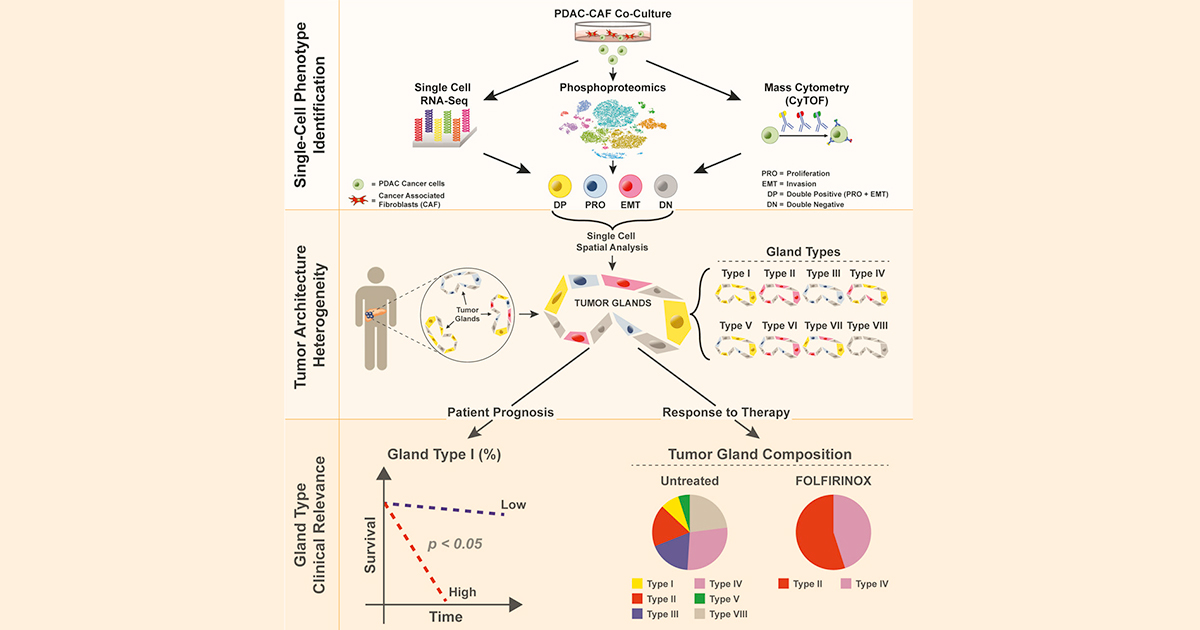Recently published research from Seed Grant recipient, Matteo Ligorio, MD, PhD, of Harvard Medical School has expanded our understanding of how the stromal microenvironment shapes a pancreas tumor and can impact clinical outcomes.
Dr. Ligorio and his team discovered that cancer associated fibroblasts (CAFs) profoundly alter the tumor microenvironment promoting an aggressive cancer phenotype with the ability to proliferate (PRO) and metastasize (EMT), called the Double Positive (DP) phenotype. With the use of cutting-edge technologies including single-cell RNA sequencing, phosho mass spectrometry and mass cytometry it was revealed that the co-activation of MAPK and STAT3 signaling pathways in these DP cells. This discovery may provide a new combination therapy strategy to target these specific cancer cells.
Most significantly, this research highlights the significance of the intra-tumor architecture, and links it to treatment responsiveness. The diversity within the tumor means that the cells do not behave uniformly but instead make up different tumor “glands” with their own proliferative and metastatic propensity. These eight different types of tumor “glands” were associated with differences in stromal abundance and correlate with patient survival and treatment response.
This study is an important step forward in understanding the complex biology of the tumor microenvironment and paves the way for novel therapeutic strategies for pancreatic cancer.
Dr. Ligorio and his team “would like to thank the Hirshberg Foundation for their generous support throughout the years…and especially express gratitude for being selected as a recipient of the 2017 Seed Grant.”
We congratulate Dr. Matteo Ligorio on this publication. The determination to understand the complex tumor microenvironment is providing the possibility of improved therapeutic options, and ultimately, increased survival rates.
Full article: https://www.cell.com/cell/fulltext/S0092-8674(19)30510-0


